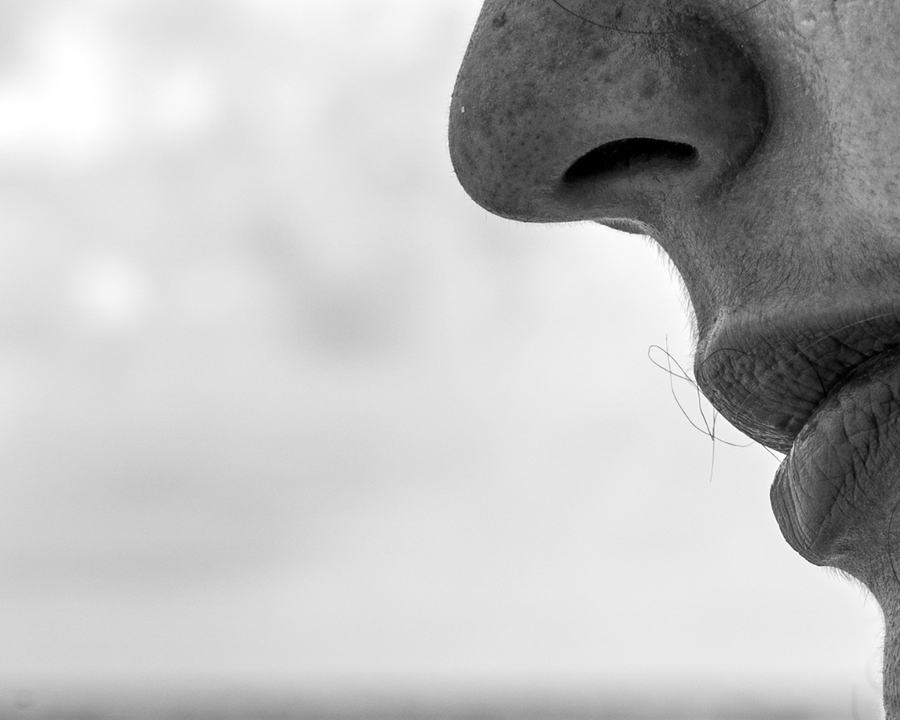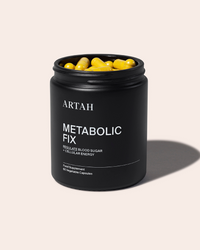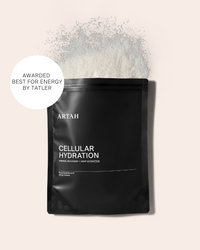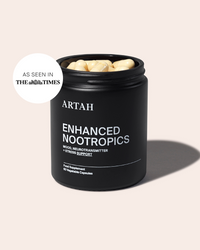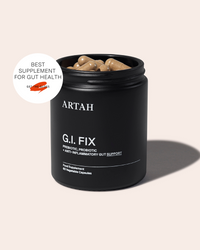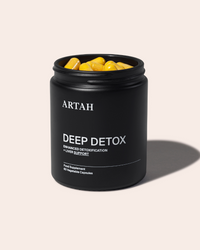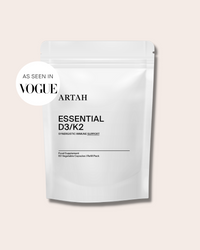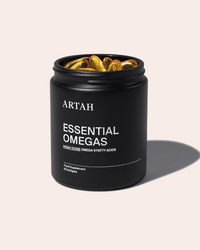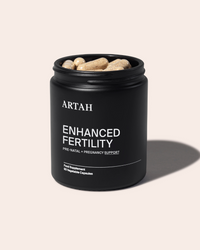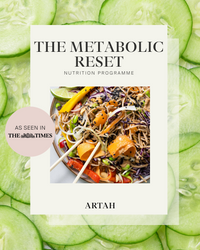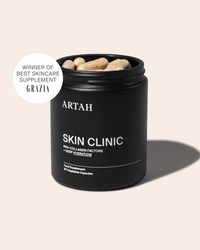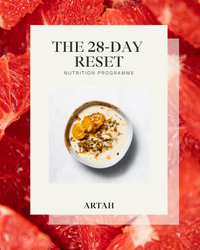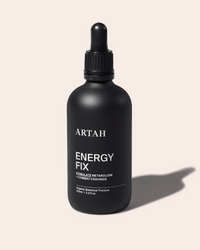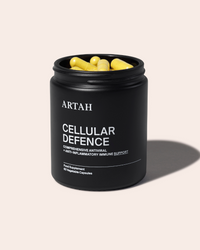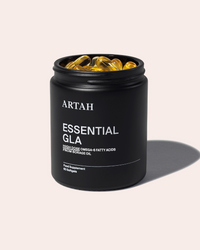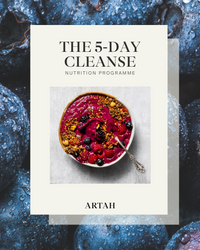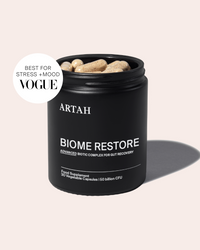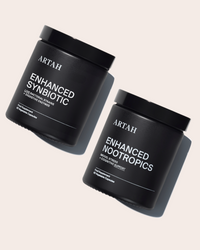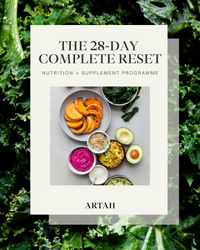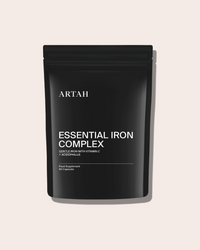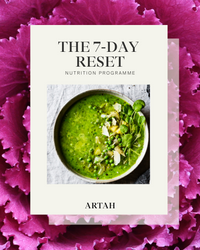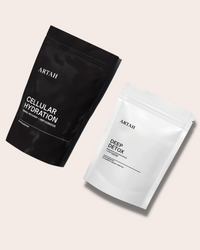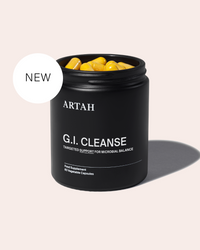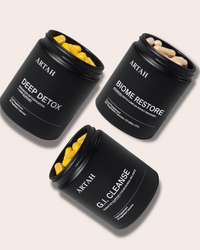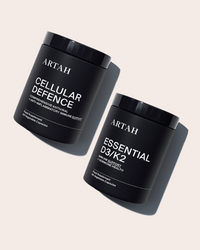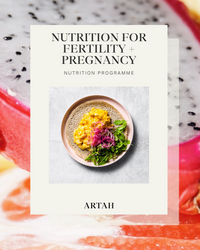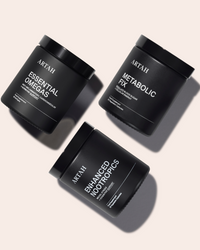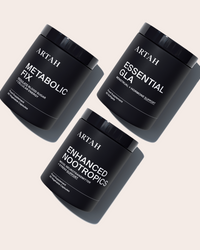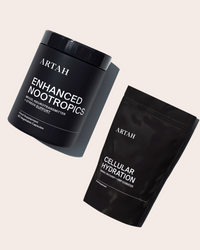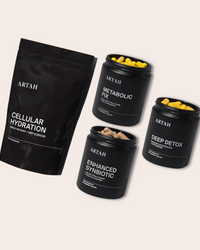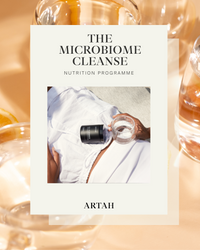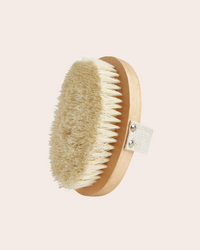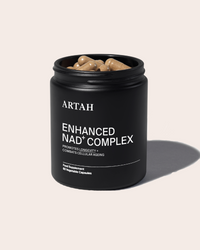Bloating Hacks the Experts Swear By
IBS affects millions of people in the UK, but even in the absence of IBS, we’ve all suffered with occasional bloating – and it’s the worst. So what are the hacks the experts swear by to help keep bloating at bay? Read on to find out.
They Make Motility a Focus.
The ability of our gut to contract and move food through our digestive tract (or motility) is incredibly important when it comes to bloating. If our motility is slow, we’re more prone to bloating and discomfort. If this continues over time, it can also contribute to constipation, SIBO and other bacterial imbalances in the gut. So, what prevents our motility from being as good as it could be? There are a variety of factors. Slow motility is common in individuals with diabetes, chronic stress, thyroid issues and SIBO (which can be both a contributing factor and a side effect of altered motility). One of our main regulators of gut motility – the migrating motor complex (MMC) - is triggered by the absence of food, so eating too frequently can also slow things down.
Try this: Leave at least 12 hours between the last and first meal of the day and ditch the grazing; instead, aim for a 4-hour gap between meals in the day. Walking after meals (or just more frequently throughout the day) is also a great way to promote motility, it’s known as a prokinetic for the gut. Other prokinetic activities include jogging, rebounding, and jumping in general. For a little extra herbal in the motility department, try GI Fix, which features Triphala, Ginger, and Probiotics to keep things moving.
They Love Digestive Bitters
Digestive bitters are concentrated blends of bitter herbs that have been shown to stimulate digestion, detoxification and bowel regularity. They trigger digestive enzyme production, bile secretion and help promote good acid levels in the stomach. Certain bitters will also have an anti-spasmodic effect, which can help when bloating is accompanied by cramping. Digestive bitters are growing in popularity, but they’ve been around for ages; herbalists, naturopaths and health experts couldn’t live without them.
Try This: We love Digest + Debloat for the ultimate mix of bloat-banishing bitters. Take in water 20 minutes before your meal to prevent bloating or alternatively, after a meal or the onset of discomfort.
They Reduce Raw Food
Yes, raw vegetables are a great source of fibre, phytonutrients, vitamins and minerals. They can even contain natural enzymes that can promote digestion. But, if your digestive system is under fire, too much raw food can be difficult to digest and exacerbate bloating. Many vegetables have tough cellular structures that require more energy to digest. Mechanical digestion (aka chewing) is an important part of digesting raw vegetables, but most of us don’t chew enough, and this can take its toll.
Try this: If you're bloated, reduce the amount of raw food you eat and swap for the cooked versions until you’re feeling better. For easier to digest raw foods, focus on things like raspberries, cherries, ripe kiwi, soft leaves, avocado, cucumber, courgette, papaya and melon. Pro tip - leave the skin on your kiwi (but wash thoroughly) for an extra 50% of fibre.
They Use Apple Cider Vinegar (ACV)
A few weeks ago, we discussed raw ACV’s protective effect on the microbiome (it can inhibit pathogenic bacteria like E coli, Staphylococcus aureus and Candida albicans (1)), but it also plays another role in digestion. ACV helps acidify the lumen of the stomach and, contrary to popular belief, stomach acid is actually a good thing. It helps trigger the digestive process by cleaving inactive forms of digestive enzymes into their active form and is required for proper digestion.
Try this: 1 tbsp of raw apple cider vinegar mixed in water before a large or carbohydrate heavy meal.
They Eat Cholagogue Foods.
Never heard of them? Don’t worry, most people haven’t. A cholagogue is something that stimulates the production and release of bile from the liver and gallbladder, an essential part of healthy digestion and motility. Cholagogue foods include turmeric, cold pressed olive oil, grapefruit, raw beets, dandelion greens, lemon, fennel, cinnamon, artichoke, cilantro, chicory, coffee (!!), radish and rhubarb.
Try this: Up your intake of traditional cholagogue foods, or if you prefer something a little faster acting, try Deep Detox, which has active extracts of herbal cholagogues like Turmeric, Milk Thistle, and Artichoke, which can all aid bloating and encourage digestion.
They’re Picky About Alcohol.
Alcohol is well known to induce gastric irritation (2) and dysbiosis-related changes to our microbiome (3), so let’s be clear, there is no ‘healthy’ alcohol. BUT, there is a big difference between various types of drinks and how we respond to them. Certain types of wine, for example, will have a more diverse phytonutrient profile than others, which may help counteract some of the negative effects on the microbiome (if in moderation). Organic Pinot Noir and Cabernet Sauvignons, for example, have been shown to have greater levels of polyphenols, which can reduce the extent of dysbiosis (4). Distilled drinks like vodka, gin, and tequila are often the drink of choice for nutritionists because of their low sugar content, which can lessen their effects the next day, however, the jury is out on whether they are a better choice overall because they are devoid of the phytochemicals found in certain red wines.
Try this: The best advice is, of course, to avoid alcohol if you’re feeling unwell. Once you feel better, try observing how you respond to different types. Champagne, sugary cocktails and white wine can be harder to stomach because of the excess sugar, which will exacerbate gut issues, so it’s worth trying good quality red wines and distilled spirits to see which suits you best.
This article is for educational purposes only and the implementation of the theories and practices discussed is at the sole discretion of the individual. All advice given is not substitute for medical advice, diagnosis, or treatment. If you have any concerns about your health, you should speak with your physician.
References
1. Yagnik, D., Serafin, V. & J. Shah, A. Antimicrobial activity of apple cider vinegar against Escherichia coli, Staphylococcus aureus and Candida albicans; downregulating cytokine and microbial protein expression. Sci Rep 8, 1732 (2018)
2. Bishehsari F, Magno E, Swanson G, Desai V, Voigt RM, Forsyth CB, Keshavarzian A. Alcohol and Gut-Derived Inflammation. Alcohol Res. 2017;38(2):163-171. PMID: 28988571; PMCID: PMC5513683.
3. Engen PA, Green SJ, Voigt RM, Forsyth CB, Keshavarzian A. The Gastrointestinal Microbiome: Alcohol Effects on the Composition of Intestinal Microbiota. Alcohol Res. 2015;37(2):223-36. PMID: 26695747; PMCID: PMC4590619.
4. Engen PA, Green SJ, Voigt RM, Forsyth CB, Keshavarzian A. The Gastrointestinal Microbiome: Alcohol Effects on the Composition of Intestinal Microbiota. Alcohol Res. 2015;37(2):223-36. PMID: 26695747; PMCID: PMC4590619.




